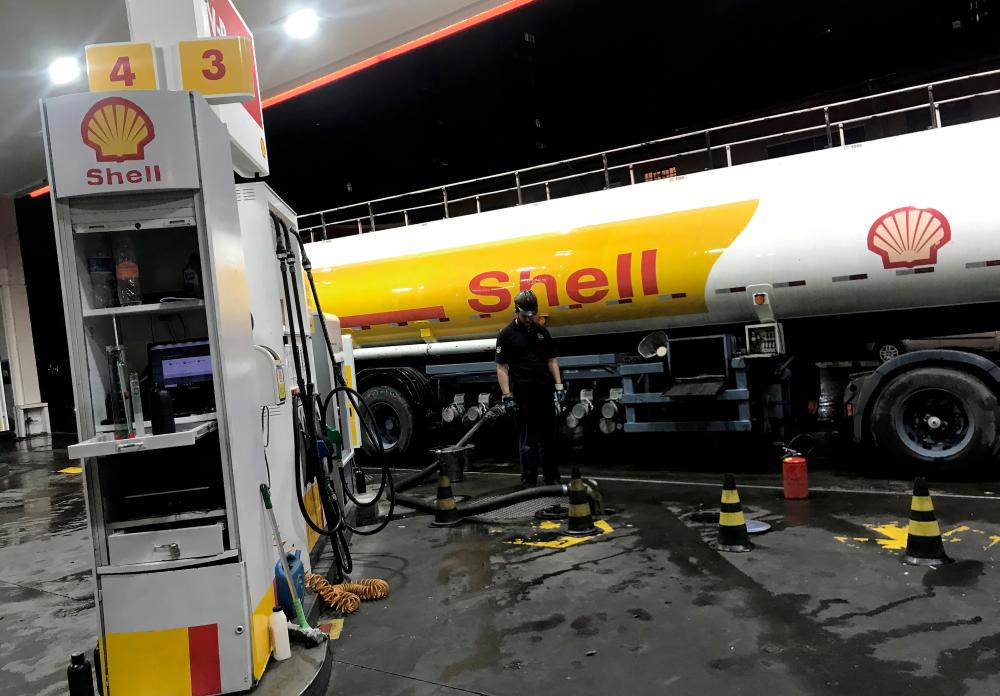LOBNDON: Royal Dutch Shell said today it would write off assets worth up to US$22 billion RM94.2 billion) after the coronavirus crisis knocked oil and gas demand and weakened the energy price outlook.
The impairments follow the Anglo-Dutch company's decision to shift from fossil fuel and reduce its greenhouse gas emissions to net zero by 2050, as laid out by CEO Ben van Beurden in April.
Global travel restrictions to prevent the virus spreading affected more than 4 billion people at one point, taking cars off the roads and grounding planes, driving down fuel demand.
Shell, the world's largest fuel retailer, said it expected a 40% drop in sales in the second quarter from a year earlier to about 4 million barrels per day (bpd), although that is more than its earlier prediction of a drop to 3.5 million bpd.
In its update before second-quarter results on July 30, Shell said upstream oil and gas production was expected to average 2.35 million bpd in the three months to June, down from 2.71 million bpd in the first quarter.
Shell, which has a market value of US$126.5 billion, said it would take an aggregate post-tax impairment charge of US$15 billion to US$22 billion in the second quarter.
The impairments relate to large liquefied natural gas (LNG) operations in Australia, including the Prelude floating LNG facility, the world's biggest, as well as oil and gas production assets in Brazil and the US shale basins.
Its shares were down 1.9% by 1014 GMT.
Credit Suisse analyst Thomas Adolff said the second quarter would be the toughest for many companies and Shell had sent a "wake up call".
Shell's move follows BP's decision to cut up to US$17.5 billion from its assets, as it responds to the coronavirus crisis and shifts to low-carbon energy.
Shell responded to the pandemic by cutting its dividend for the first time since World War II and lowering spending in 2020 to a maximum of US$20 billion from US$25 billion. It aims to announce its restructuring plan by the end of 2020.
Shell reduced its expected average benchmark Brent crude price for 2020 to US$35 a barrel from US$60, and cut its 2021 and 2022 forecasts to US$40 and US$50, respectively, also down from US$60.
Shell said its long-term oil price outlook was US$60. That is just below BP, which cut its long-term Brent forecast to US$55 from US$70. Other rivals still have higher projections.
The Anglo-Dutch group cut its long-term refining profit margin outlook by 30% and set its long-term natural gas price at $3 per million British Thermal Units (BTUs).
Shell's integrated gas business will account for US$8 billion to US$9 billion of the writedowns, while the upstream division will account for US$4 billion to US$6 billion. Downstream refining and marketing will account for another US$3 billion to US$7 billion.
The impairments will raise Shell's debt-to-equity ratio, or gearing, by 3%. Gearing stood at 28.9% at the end of March. – Reuters













